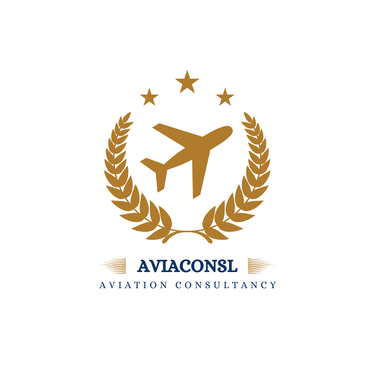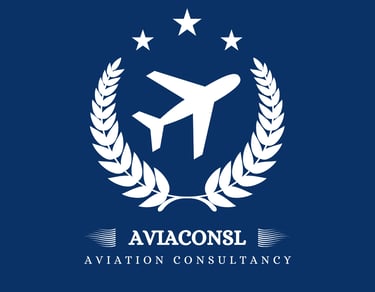Legal Complexities in Private Aircraft Registration
How Owners Choose the Right Jurisdiction and the Risks Involved
When purchasing a private jet, one of the most overlooked yet legally complex aspects is the process of aircraft registration and the selection of the appropriate jurisdiction. Registration is not merely an administrative formality but a critical factor that influences taxation, insurance, regulatory compliance, operational freedom, and even the ease of resale. Choosing the wrong jurisdiction can lead to unexpected legal constraints, financial penalties, operational restrictions, lack of international recognition of ownership, and even difficulties in obtaining proper insurance coverage. Many private jet owners face significant challenges when registering their aircraft, often unaware of the long-term implications of their decision.
Aircraft registration is governed by international regulations under the 1944 Chicago Convention on International Civil Aviation, which mandates that each aircraft must be registered in only one country at any given time. While some jurisdictions provide a straightforward registration process with minimal restrictions, others impose complex conditions such as requiring the owner to be a national or resident of the country, charging high registration fees, or applying restrictive tax policies on aircraft owners. The fundamental challenge arises when an owner chooses to register an aircraft in a jurisdiction different from their country of residence, only to later discover that such a decision has unintended legal consequences.
Tax implications are among the primary concerns for private jet owners. Some countries impose heavy registration fees or annual taxes based on the owner’s nationality or the aircraft’s operational use. Several owners who opted for the United States N-Registry, for instance, later found themselves facing tax disputes in their home countries, where authorities considered the foreign registration an attempt to evade local tax obligations. Similarly, some European owners registering their aircraft in offshore jurisdictions like the Isle of Man or the Cayman Islands have been investigated for alleged tax avoidance, highlighting the importance of understanding international tax treaties and bilateral aviation agreements.
Operational restrictions present another critical legal risk. Certain jurisdictions impose strict limitations on aircraft registered in specific countries, preventing them from landing or flying through controlled airspace. Private aircraft registered in jurisdictions perceived as tax havens, such as Bermuda or the British Virgin Islands, have faced difficulties operating within the European Union due to regulatory concerns over compliance and aircraft oversight. A high-net-worth individual who purchased a private jet and registered it in the Caribbean found that multiple European airports imposed additional scrutiny on his aircraft, requiring extensive documentation and proof of compliance with EASA safety standards before granting landing permissions.
Ownership recognition also plays a crucial role in legal disputes, as not all jurisdictions afford the same level of protection to aircraft owners. If an aircraft is registered in a country with weak legal safeguards for private ownership, the owner may struggle to enforce their rights in the event of an ownership dispute or asset seizure. A well-documented case involved an aircraft registered in the Marshall Islands, which was confiscated by authorities in a European country due to a financing dispute. The owner faced significant legal challenges because the registration did not provide the same protections as those available under more established jurisdictions like the United States or Switzerland, demonstrating that registration location can directly impact an owner’s ability to assert property rights.
Insurance considerations further complicate the registration process, as most major insurers set stringent conditions based on the country of registration. Aircraft registered in jurisdictions that lack robust oversight often attract higher insurance premiums or may even be denied coverage entirely. In 2021, an aircraft owner who registered his private jet in Vanuatu encountered difficulties securing insurance, as major insurers deemed the jurisdiction's aviation authority to be non-compliant with ICAO standards, making the risk uninsurable. The owner was forced to re-register the aircraft in a more recognized jurisdiction to obtain adequate coverage, incurring additional costs and legal complexities in the process.
Resale and transfer of ownership present another significant challenge, particularly in jurisdictions that impose rigid bureaucratic requirements on aircraft transactions. If an aircraft is registered in a country that mandates government approvals for ownership changes, the resale process can become lengthy and complicated, discouraging potential buyers and reducing the aircraft’s market value. In one case, a private jet owner attempted to auction his aircraft internationally but was unable to complete the sale due to strict nationality requirements imposed by the registration country, which did not permit ownership transfers to foreign entities without exhaustive documentation and pre-approvals from the local aviation authority. The transaction ultimately collapsed, forcing the owner to initiate an expensive and time-consuming deregistration and re-registration process.
To mitigate these risks, private jet owners must undertake thorough legal due diligence before selecting a registration jurisdiction. Several factors must be considered, including the regulatory flexibility of the chosen country, its taxation policies, insurance market compatibility, operational freedom, and ease of ownership transfer. Certain jurisdictions such as Malta, the Isle of Man, and Switzerland have developed favorable aircraft registration regimes that balance tax efficiency with strong regulatory oversight, making them attractive options for private aircraft owners seeking both legal security and financial predictability.
Choosing the right jurisdiction for aircraft registration is a decision that extends far beyond administrative convenience. It can determine an owner’s legal rights, tax obligations, operational flexibility, and ability to insure and sell the aircraft in the future. Many aircraft owners have found themselves embroiled in unexpected legal disputes with aviation regulators, tax authorities, and insurers due to a miscalculated registration decision. By securing specialized legal counsel and carefully analyzing the long-term regulatory landscape, owners can avoid these pitfalls and ensure that their aircraft remains a valuable, legally protected asset in the global aviation market.




